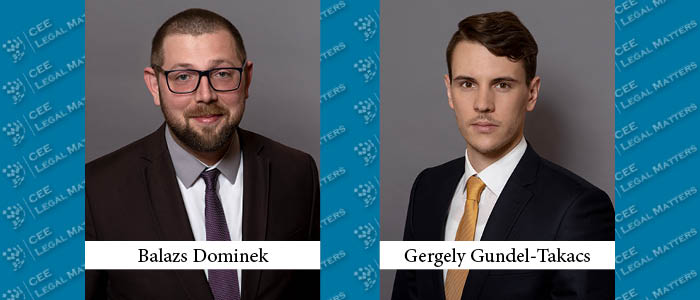Merger control clearance is a key issue in planning and implementing larger M&A deals due to the standstill obligation established by Council Regulation (EC) No 139/2004 (EUMR) and most national competition laws within the EU. If the EUMR is applicable to a transaction, a one-stop-shop system is granted where the Commission has exclusive jurisdiction for merger clearance and the merger clearance regimes of Member States are disregarded.
However, only a few transactions in the CEE region are large enough to qualify for clearance under the EUMR. Most international transactions remain within the scope of national merger regimes and clearance applications shall be made in a number of countries where the parties to the merger have an economic footprint. Undoubtedly, national merger-filing obligations of a large international deal make transaction timing and planning very challenging, even for professionals.
Transaction-planning is not the only issue. As European legislation on merger control has not been harmonized, there are several significant differences in how member states interpret the concept of concentrations and the criteria for reporting obligations ¬– most predominantly, the definition of undertakings concerned and the calculation of merger clearance thresholds.
Not only are there severe differences in calculating merger clearance thresholds, there are also differences in the concept of concentration, even among EU member states. Consequently, transactions failing to qualify as a concentration in the application of the EUMR or at the place of the deal might still require merger clearance in jurisdictions they affect, as foreign-to-foreign transactions are usually subject to merger clearance notification in member states where the parties to the transaction realize substantial turnovers either under a payment or shipment view.
Regarding the concept of concentration (i.e., the definition of a change of control over undertaking(s) or certain assets), the case law of the Hungarian Competition Authority (HCA) has established two significant differences compared to the EUMR. On one hand, any reduction in the number of shareholders might qualify as a concentration. On the other, exclusive outsourcing agreements might also establish a notifiable concentration.
The definition of the group of undertakings concerned by a transaction (i.e., the undertakings whose turnovers shall be calculated to establish the triggering of merger clearance thresholds) remained uncontested until recent times. Nevertheless, a recent decision of the HCA brought a new dimension of expanding the jurisdiction of the Hungarian merger control regime to foreign-to-foreign transactions from this perspective.
At the end of 2022, in the GI International case (Case no. Vj-43/2020), the HCA crystallized its view on indirect joint ventures. More closely, the HCA established that if a transaction – even indirectly – involves a joint venture with a third independent party, then this third party is also considered an “undertaking concerned” and its group turnover shall not be disregarded in calculating merger clearance thresholds.
In this decision, an unnotified foreign-to-foreign merger was investigated, where the acquired group of undertakings operated a joint venture in Hungary with a third independent party. The HCA established that (a) the foreign-to-foreign transaction created an indirect acquisition of control over this Hungarian joint venture, and (b) the turnover of the other shareholder group of the respective joint venture should also be assessed in defining merger clearance thresholds (i.e., the calculation of relevant turnovers to establish the economic footprint which triggers a merger clearance obligation).
Despite the remarkable legal issues raised and nonetheless professionally a rather questionable interpretation of the law, there are many things to learn from this decision. A foreign-to-foreign transaction might be subject to a merger clearance application in Hungary regardless of the Hungarian turnovers of the acquiring group where the transaction involves an indirect joint venture with an independent party. Namely, if the Hungarian turnover of the joint venture and its independent joint shareholder is big enough, this alone shall trigger a national merger clearance obligation.
Most importantly, professionals shall not rely on the interpretations of the EUMR in international merger clearance planning where only national clearance obligation(s) is/are triggered by a transaction – not even at a jurisdictional assessment involving EU Member States. It is always advised to involve antitrust professionals with sufficient coverage in the region where the target group(s) operate.
By Balazs Dominek, Managing Partner, and Gergely Gundel-Takacs, Attorney-at-Law, Szabo Kelemen & Partners Andersen Attorneys
This article was originally published in Issue 10.6 of the CEE Legal Matters Magazine. If you would like to receive a hard copy of the magazine, you can subscribe here.


